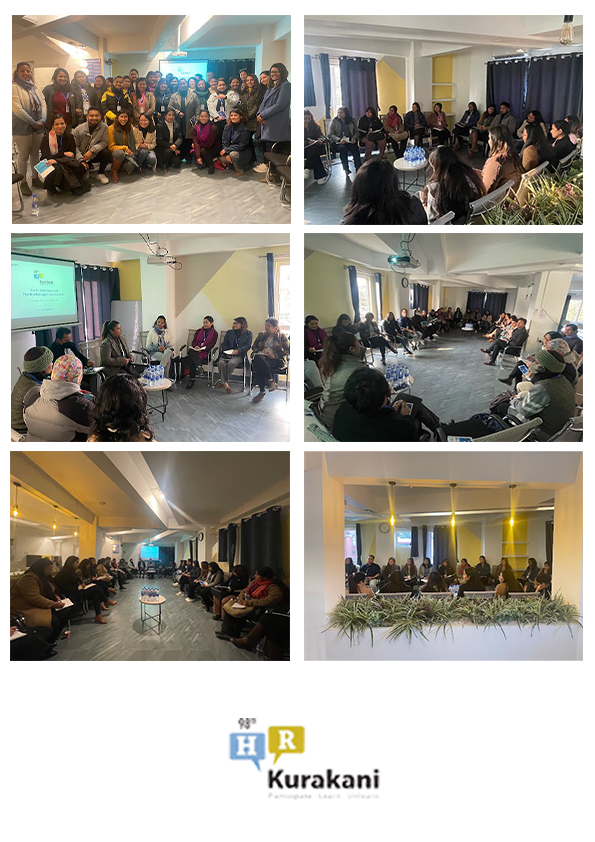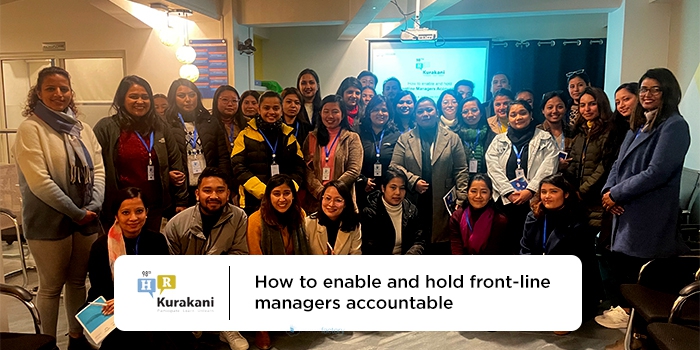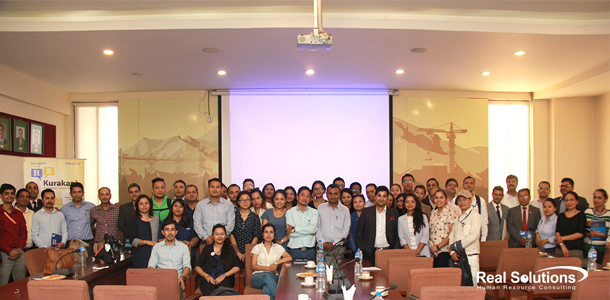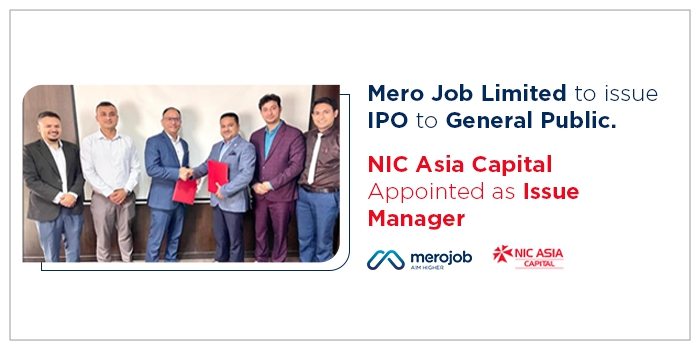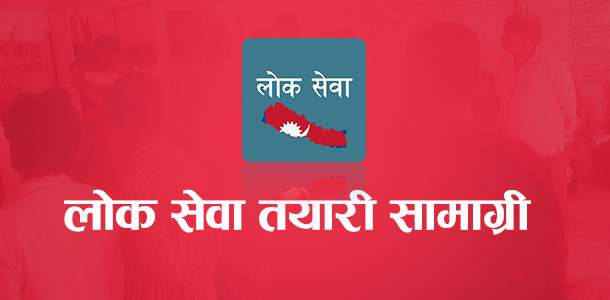There are many concerns and issues HR professionals face every day, to discuss and learn from such challenges HR Kurakani, an open platform was initiated. HR Kurakani began in 2010 AD as a platform for HR professionals to come together and discuss the latest trends, technologies and practices in the field. The goal was to create a network among professionals from various working groups to learn and grow together. Even during the Covid period, we continued the sessions virtually. HR Kurakani sessions have now been restarted from January 2023 to achieve the same objective.
The 98th HR Kurakani was held on 4th January 2023 that focused on the topic ‘How to enable and hold front-line managers accountable’. The session was attended by 35+ HR professionals from various organizations in Nepal and was adeptly moderated by Ms. Rebekah Rai and graciously hosted by Ms. Richa Koirala at the premises of CloudFactory.
The session addressed the challenges of holding the frontline managers accountable and how to mitigate the problem. HR practitioners shared the practices they implemented in their company to hold front-line managers accountable.
Front-line managers
Front-line managers are typically responsible for overseeing the daily operations of an organization, including the activities of front-line employees, who interact with customers directly and provide essential business services.
Line managers are not just HR managers, they are typically the first level of management in an organization and are responsible for implementing the plans and policies established by higher-level managers. This can include tasks such as scheduling, and training, as well as motivating and looking after the employees. They are also often responsible for communicating feedback from employees and customers to higher-level managers and making recommendations for improvements.
Break down of the sessions and Topics discussed
Post covid changes in the Workplace:

There have been a lot of changes in the workplace globally after Covid. The working environment, business modality, working patterns, and timing have been adjusted. Before working from home did not seem possible but post covid working from any location was possible. During these difficult times, front-line managers played a significant role in the upliftment of an organization. Therefore, if frontline managers are not accountable, disaster is certain.
One of the HR practitioners raised an issue their company was facing due to covid. As per the expert, many employees left the company and only a few remained. One major problem - the project is ongoing, but the front-line managers are not accountable for their work. The managers believe that the team they were assigned was different from the one they currently work with. The company cannot lose them as they know in and out of the project and if someone new is hired it would take them 5 months to catch up.
Solving Employee Retention Problem:

Employees switch jobs in a short period. Despite having signed an employment agreement, people want to switch. There is no accountability for their work while they are on notice period.
“One way to mitigate this issue is by proving them an opportunity to learn,” says Ms. Rai. Further, she added the leads may be thriving in what they do, but apart from that, the company can offer them certifications for their progress and talk to them about their interests. Hold one-on-one sessions about how the company can support them in enhancing their career and what they want to do in their life.
When such an approach is taken employees have a feeling that the company is investing in their growth and they too need to give something back to the business. Certain percent feel accountable for their work through clear talk.
Approach to flow information from the bottom to the top level:

Lack of clear communication can lead to confusion and mistakes in decision-making and can affect the overall performance of the team. To solve this issue, the lower-level employee can first sit for a meeting and discuss solving any issue that they arise.
The next approach is that if the problem is not solved within the timeframe it is forwarded to the higher authority. Within 2-3 hours, the CEO executive level will find out about the issue. In practice, if the problem is not solved at one level, it will be escalated to the executives.
Clear Expectations and Develop Capabilities:

As per Mr. Ayush Siddhi “The first thing, about accountability and front-line manager work tracking is about expectation.” Further, he elaborated that the first thing is the expectation, which is the foundational part. Everybody is accountable for the work that they do, but do they know what the expectations are from them?
Every front-line manager must have a set of capabilities. “In CloudFactory we use a structure called support and challenge, we need to challenge people to take responsibility, but we also need to be clear if they have the capability and skills to be able to deliver on that,” says Mr. Siddhi. If the manager knows their responsibility, it’s clear what needs to be done, but if he/she does not have the resources and team members then there is a problem. When the issue has been identified, it would be best to ask the managers what kind of people they need.
Provide Role Clarity:

If two operations people are working together in a department and both are doing the same thing then there is pure misalignment and an issue with clarity.
Ms. Richa Koirala shared that they work in a very agile methodology where they work in a sprint modality. The project lasts six months but gets broken down into deliverables every fortnight. This method clearly explains who needs to do what which brings a lot of clarity to everyone. Also, deliverables look much easier.
Provide Necessary Training:

People get promoted based on merits but for first-time managers, it can be difficult to handle a team. They might be good at their jobs but they might not be great at managing people. Just because an employee gets promoted does not mean that they would be a great manager. Before they might have been responsible only for the task, but now they are responsible for the people’s success.
If managers approach the company saying that they do not know how to manage their team then HR may help them by proving the necessary training.
Authority to the Front Line Managers:

Front Line Managers are given the responsibility to look after the team and achieve their targets, but at the end of the day if they do not have the authority to take make quick changes they might feel demotivated.
Even for small tasks if the lead has to take permission from the management it can be frustrating for them. Authority should be clear from day one. In the case of work delegation and authority, the management should be clear about the roles and responsibilities.
Discuss interests and responsibilities before promoting:

Promotion should not be one-sided because employees have a sense of autonomy and agency in their careers. Allowing employees to express their interest in taking on a leadership role and managing a team helps to ensure that they are motivated and engaged in their work, which can lead to better performance and job satisfaction. Additionally, discussing with employees beforehand about the promotion and their new roles and responsibilities help to build trust and foster a positive work culture.
Take Feedback from the team:

The best way to evaluate if the team is comfortable with the manager is by taking feedback. Some questions to ask can be
When you approach your manager with a problem, do you trust they will listen?
Are they able to teach you the way you want to be taught?
Does your manager create a trusting and open environment?
Are they understanding in nature?
Ms. Vedika Shakya shared an approach they practice in their company. She said “We sit with the team members and take feedback regarding the team lead. This has set a culture in our company. This way the employees feel valued and they know that they are not just responsible for their work and their work is interrelated.”
Alternatively, when it is not possible to take feedback from everyone so we can identify certain trustworthy members on sample basis to get honest feedback. After reviewing the feedback we talk to the leads and give a timeline for improvement added Ms. Rebecca Shrestha Chhetri
Conduct weekly meetings:

There is a greater chance of work being completed if individuals are self-committed. Plans should come from the team leads. A weekly meeting where team leads can present what tasks they plan to complete. This helps the leaders feel empowered knowing that the ideas they proposed in being considered. Later to execute the plan the leads can flow the work to the team and then divide the workflow.
At the Kurakani, it was mentioned that team members tend to show signs like taking long leaves or taking leave on short notice when they are not satisfied with their supervisors. Such patterns can be identified and action taken.
Some stated accountability is associated with problems. Accountability is only considered when something goes wrong. The higher authority should pay attention to the improvement curve and address any issues that arise.
HR should gather enough information on team leads and members in written form when conducting exit interviews and plan out what changes need to be made.
Here are some glimpses from the event.
